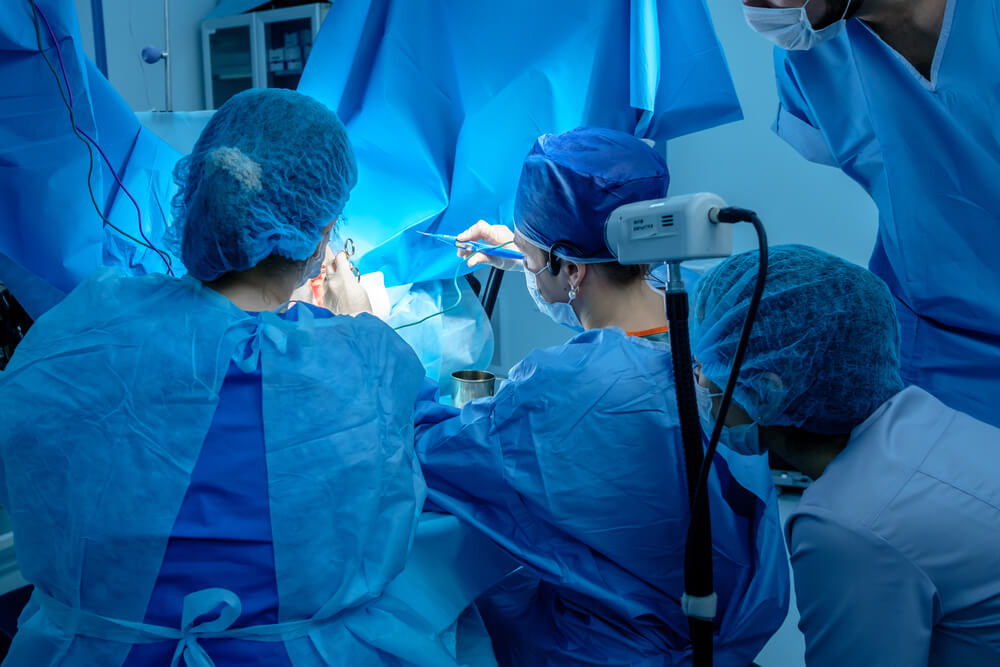Colorectal surgery can be daunting, but it can save your life. Whether you are preparing for the surgical procedure or you know someone who is, this overview of the different types of colorectal surgery will help educate you. Besides learning about the additional surgery types, you will also learn what to expect from the recovery process. You will also get helpful tips for preparing for rectal cancer surgery.
If you have additional questions or concerns, seek out the guidance of a professional. We recommend reaching out to a colorectal surgery specialist at Advanced Surgical Physicians in Palm Beach County.
Without further ado, here is everything you need to know about rectal cancer treatment and recovery.
What is Rectal Cancer?
Before listing the types of rectal cancer surgery, let us explain what rectal cancer is. In brief, rectal cancer refers to a disease in which cancer cells develop in the rectum tissues.
Some factors may put you at higher risk of developing colorectal cancer, including:
- Having a history (either family or personal) of rectum cancer, colon cancer, or ovary cancer.
- Having a history of high-risk adenomas.
- Having a history of Crohn’s disease for eight years (or more) or chronic ulcerative colitis.
- Consuming more than three alcoholic drinks daily.
- Genetics.
- Being overweight or obese.
- Smoking cigarettes.
Another common risk factor is older age. As you get older, the chances of developing cancer may increase.

What are the Colorectal Surgery Types?
You or a loved one may have been diagnosed with colorectal cancer. What are your next steps? Your healthcare provider will likely recommend rectal cancer surgery. Depending on the cancer stage at diagnosis, the surgery extent and whether you will need to receive added treatment (such as radiation therapy or chemotherapy) will vary.
If you have early-stage rectal cancer, your doctor will recommend surgical removal using instruments via the anus. Although this method of rectal cancer surgery does not require incisions, it is only suitable for patients with very early cancers or pre-cancers.
That said, most patients with stage 1 and stage 2 colorectal cancer will need to undergo a “proctectomy.” Proctectomy is a term referring to rectum resection, and it is categorized into:
- Abdominoperineal resection or APR
- Low anterior resection or LAR
Below, you will find essential facts on both of these rectum resection varieties.
Abdominoperineal resection
An APR involves the removal of the entire anus and rectum without reconnection. In other words, APR is a permanent ostomy. Patients require this variety when the tumor is extremely “low.” Hence, the rectum area where the cancer developed must be entirely removed. In some cases of abdominoperineal resection, the surgeons will reattach the colon to the healthy part of the rectum. However, in other cases, a colostomy is required.
Low anterior resection
On the flip side, in a LAR, the rectum area with the tumor is surgically removed with healthy tissue. Next, the surgeons will usually reconnect the colon to what is left of the anus or the rectum. Most cancer patients that undergo low anterior resection with a reconnection will require a loop ileostomy. Loop ileostomy or small intestine ostomy refers to a reversible procedure that helps the connection heal.
Once the patient recovers from low anterior resection and receives adjuvant therapy (if needed), the expert will analyze the rectum connection. If it is healed, they will reconnect the small intestine. Other cancer patients may require a colostomy.
As mentioned, during rectal cancer surgery, some patients may require the removal of the entire rectum. This is because the lymph nodes close to the rectum also need to be removed. The professional will reconnect the colon to the anus, and sometimes, a J-pouch is created.
As a reminder, the colon J-pouch and the ileal or small intestine J-pouch are not the same things. The latter is for patients with Ulcerative Colitis or Familial Adenomatous Polyposis.
Instead of making a straight connection, the “J-Pouch” behaves as a reservoir. According to findings, a colon J-pouch may be more effective than a straight connection. However, this theory requires more research, especially in long-term cases.
However, a J-pouch is not always possible. Namely, the remaining colon length or the amount of space in the patient’s pelvis may be insufficient.
Patients with a T4 tumor or individuals with stage 4 cancer that spread to other organs around the rectum may require more extensive colorectal surgery. This means that nearby organs affected by the cancer cells may also need to be removed.

How to Prepare for Rectal Cancer Treatment?
Here are some helpful tips that will prepare you for surgery. Consider the following:
Always ask questions
Be honest and transparent with your healthcare provider, and feel free to ask questions about the procedure and the recovery process. Here are some questions you may want to ask:
- Are there any complications I need to be aware of based on my overall health and age?
- What will you do if my cancer is more widespread than you thought?
- What changes should I expect in my bowel habits or my lifestyle?
- Do I need to fast before my surgical procedure, or do I need special bowel prep?
- Will drains be involved?
- Will I have a nasogastric tube or a bladder catheter, and if so, for how long?
- When can I eat after the procedure, and what will my diet look like?
- Will I be able to walk after surgery?
- When can I go back to my normal routine post-surgery?
- Will I be able to continue with exercise?
- Will I have a permanent ostomy?
Consider prehabilitation
Based on some findings, prehabilitation or pre-hab may reduce the chances of complications post rectal cancer treatment. Moreover, rehabilitation could help with building back energy levels in patients. We recommend consulting with your healthcare provider about prehabilitation options.
According to experts, the best thing you can do before surgery is to set future goals and talk about expectations with your surgeon and your family. Physically, you will want to consume a wholesome, healthy diet, work out at least three times per week, and if you smoke or drink, quit cigarettes and alcohol.
Rectal Surgery Recovery: What to Expect
You will want to be patient during the recovery process. Rectal surgery recovery will take some time, and the healing process will depend on the surgery type. Above all, ensure that you have emotional support from either family members, friends, or people from your community. Additionally, you may want to consider:
- Have a management plan for pain (discuss pain management with your doctor before the procedure).
- Caring for the surgery site (learn about the proper ways to take care of the wound and consult an ostomy nurse if you need guidance).
- Exercise lightly (Moving your body is crucial, but during recovery, you will want to keep things light. Talk to your healthcare provider about when you can increase your activity levels).
Patients who underwent APR will need to shower with gentle soap and water. Always pat dry and avoid baths, hot tubs, and swimming for at least one month. Ring pillows should also be avoided as they can stall healing. Instead, use regular pillows.
Always reach out to your doctor if you have additional questions or concerns about surgery and recovery.
Choosing reliable healthcare specialists is mandatory for a successful surgical procedure and speedy recovery. Do not hesitate and book a schedule with us today.



